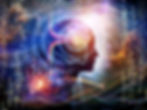Whenever I climb I am followed by a dog called ego-Friedrich Nietzsche
- Richard Kaul
- Jan 6, 2015
- 4 min read
The immediate and obvious interpretation of the above vignette from the German thinker is that the elevation of an individual’s standing in society is invariably associated with an inflation of the ego. It assumes that the enlarged ego is a consequence of the upward mobility and not possibly the reverse in which it would be necessary to conceive that it is in fact the feisty ego that caused the man to move forward.
Dogs are generally considered loyal, protective animals that form deep bonds with their human counterparts and so with this widely accepted understanding of their role in human relations it can be assumed that the ego is synonymous with the more constructive aspects of human nature. The ego and its definition by Freud are not in any way absolute entities and were simply an attempt on the part of Freud to provide a conceptual framework around which he could explain the mental aberrations he witnessed in the psychiatric patients of 19th century Austria. However it did establish a point of reference from which an entire body of psychology developed and helped significantly in the answering of some of the more profound questions that relate to the meaning of our existence.
A healthy ego is like a healthy dog and will provide a reliable central point around which the rest of personality development can proceed. The ego is essential to cognitive development, which is arguably the key to the degree of intellectual complexity an individual can achieve. Higher levels of intelligence are generally associated with the attainment of higher levels in human society and are considered positive attributes of the human condition. The use of intelligence for morally sound purposes is a healthy expression of ego, although the relativeness of morality makes this conceptual leap somewhat tenuous.
Without ego or the forces of personal development that it represents there is a high likelihood that the intellectual evolution of man would have been significantly hindered. A cursory analysis of the personalities of great thinkers, writers, poets and scientists are without question characterized by strong unequivocal egos that occasionally devolved into blind arrogance and ultimately self-destruction. The human quality of confidence is born from a healthy ego while that of blind arrogance is the stepchild of an unhealthy ego, with variations of these qualities populating the curve in between the two egos. It is to be expected that as a man ascends the social ladder his ego will be there at his side for it is the ego that catalyzed the motion forward. The message of Nietzsche was to be aware of the inflated sense of self that frequently occurs as a man procures power, status and wealth. However his language indicates that these alterations in societal standing have no causative relationship with the ego, which in my opinion, is incorrect. Without the ego, and in a peripherally similar way to the famous quote by Descartes ‘ I think therefore I am’ the intellect would not exist in the absence of the ego, and minus the intellect the society of man would have been no different to that of the animal.
Hardship in life creates character but only if the hardship is incorporated into the substance of character in the same way that wire is laid into soft concrete for the purpose of strengthening it. A strong character acts to balance a strong ego although it is argued that the strength of early character is influenced by a defined ego and at some point in the progression of behavioral development the entity of character assumes an equal position relative to ego. As the individual ages the relevance of ego diminishes and character becomes the overwhelming factor that determines the course the rest of his life will take.
Ego is the spark that sets in motion the combustion engine of personality and intellect, and which continues to re-catalyze the developmental process till character assumes the mantle of control. The possession of an ego is essential to societal progress and those with stronger egos are more likely to succeed in the world, in which man has lived for centuries. A weak ego will invariably result in an individual failing to fulfill his intellectual potential, which if not addressed promptly, results in the creation of a vicious cycle of self destruction in which the individual associates his poor intellect with poor self esteem (ego) which further impedes the full realization of intellectual potential. This avoidable scenario, if detected early, can be averted with intensive psychotherapy that causes an actual reconfiguration of the developing neural networks primarily responsible for ego. Detection of this condition requires the employment of an exceptionally subtle psychotherapeutic approach with questions that prompt the patient to ask of himself insightful questions intended to lead the individual to insights regarding his ego. It would be critical that during this process no reference by either the questioner or inference by the patient be made that a weak ego is the subject of the condition being treated.
Ironically Nietzsche was to a certain extent a victim of his own ego and vast intellect, which some commentators describe as hindering the development of his character. However his analytical brilliance ensured his position in intellectual history and it could be fairly assumed that the above quote was simply an attempt on his part to at least appear human.





























